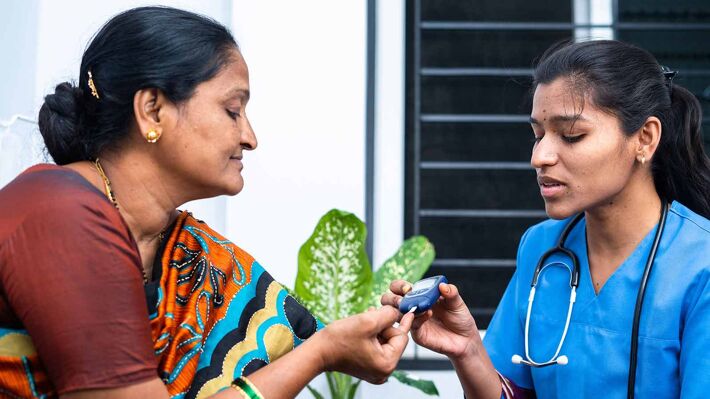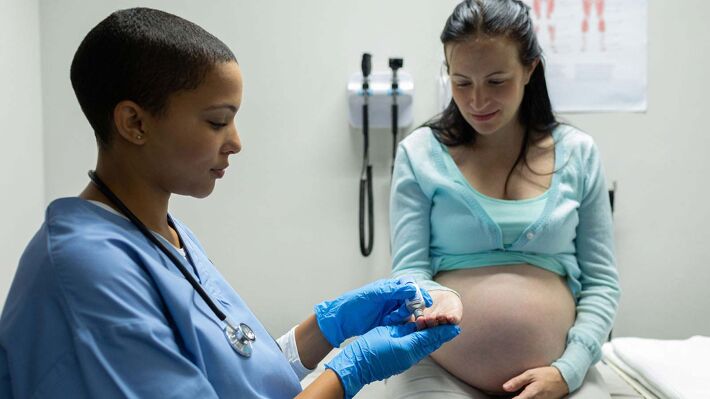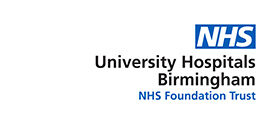Advancing Diabetes Care MSc - Module
Currently viewing course to start in 2025/26 Entry. Switch to 2026/27 Entry
This programme is a collaboration between Birmingham City University and the University Hospitals Birmingham Diabetes Team. This is an online course with the option of bespoke flying faculty delivery available for international partners....
- Level Postgraduate Taught
- Study mode Distance Learning
- Award Module
- Start date January 2026, April 2026
- Fees View course fees
- Subjects
- Location Online Learning
This course is:
Open to International Students
Overview
This programme is a collaboration between Birmingham City University and the University Hospitals Birmingham Diabetes Team. This is an online course with the option of bespoke flying faculty delivery available for international partners.
This innovative programme is designed to help you gain a greater understanding of the complexities of living with diabetes and how best to support and enable effective individualised self-management. It is suitable for healthcare professionals including GPs, hospital-based doctors, specialist nurses and practice nurses, midwives, dietitians, podiatrists, pharmacists, psychologists and other roles in many healthcare sectors.
You will develop a wide range of skills, learn about new and emerging evidence and gain critical understanding in diabetes care. You will acquire knowledge to develop and improve clinical practice in the care of people living with diabetes across the age span. You will take an evidence-based holistic approach to the provision and delivery of individualised diabetes care.
What's covered in this course?
This programme has been designed in collaboration with clinical colleagues and blends theoretical approaches with practicalities of service development and person-centred care approaches. The international dimension of diabetes and application of culturally appropriate diabetes care in different environments and resources underpins this programme. Through different modules, you will explore your employment situation, recognise the potential for excellence in practice-led care, extend and enhance your employability and career progression. You will also identify ways in which you can improve your practice and services in order to pioneer new interdisciplinary service developments.
The programme will enable practitioners working in various aspects of care, with people either at risk of or living with diabetes, to develop knowledge and skills in diabetes care. You will develop analytical skills through interactive online learning opportunities, so that you are able to critically examine practices within the context of the legislative and professional frameworks of your own country.
Accredited By
This course is accredited by:
Why Choose Us?
- This brand new course has been developed to meet the needs of interdisciplinary healthcare practitioners working in partnership with people living with diabetes
- This course aims to address the global increase in the number of people both at risk of developing diabetes and living with diabetes, and the developments in care needed to support these people
- The course has a global perspective, using our knowledge and experience of working with international partners
Entry Requirements
Essential requirements
Applicants must hold current professional registration with a UK regulatory body (NMC, HCPC, GMC).
In addition, applicants must normally meet one of the following requirements:
- Have studied to BSc Hons or equivalent, ideally to include a Research Methods module
- Have a minimum of three years in your area of clinical practice and a first degree or evidence of recent professionally related study at diploma or degree level
- Have completed degree-level study within the last five years or the Birmingham City University module Essential Academic Skills to be completed prior to starting the programme.
Completion of Non-Medical Prescribing at level 7 can be recognised through prior learning (RPL) into the programme.
Applying with international qualifications
See below for further information on applying as an international student.
If you have a qualification that is not listed, please contact us.
Fees & How to Apply
UK students
Annual and modular tuition fees shown are applicable to the first year of study. The University reserves the right to increase fees for subsequent years of study in line with increases in inflation (capped at 5%) or to reflect changes in Government funding policies or changes agreed by Parliament. View fees for continuing students.
Award: Module
Starting: Jan 2026
- Mode
- Duration
- Fees
- Distance Learning
- 16 weeks
- £860 per 20 credit module
Award: Module
Starting: Apr 2026
- Mode
- Duration
- Fees
- Distance Learning
- 16 weeks
- £860 per 20 credit module
International students
Annual and modular tuition fees shown are applicable to the first year of study. The University reserves the right to increase fees for subsequent years of study in line with increases in inflation (capped at 5%) or to reflect changes in Government funding policies or changes agreed by Parliament. View fees for continuing students.
Award:
Starting: Jan 2026
- Mode
- Duration
- Fees
- Distance Learning
- 16 weeks
-
TBC
Award: Module
Starting: Apr 2026
- Mode
- Duration
- Fees
- Distance Learning
- 16 weeks
- £860 per 20 credit module
Application deadlines for MSc/PgDip applicants
Applications will remain open until the end of September, but please note that teaching for the September intake begins on Monday 22 September 2025.
Personal statement
You’ll need to submit a personal statement as part of your application for this course. This will need to highlight your passion for postgraduate study – and your chosen course – as well as your personal skills and experience, academic success, and any other factors that will support your application for further study.
If you are applying for a stand alone module, please include the title of the module you want to study in your Personal Statement.
Not sure what to include? We’re here to help – take a look at our top tips for writing personal statements and download our free postgraduate personal statement guide for further advice and examples from real students.
Course in Depth
Core Modules
For the PG Dip:
In order to complete this course a student must successfully complete all the following CORE modules (totalling 70 credits):
For the MSc:
In order to complete this course a student must successfully complete all the following CORE modules (totalling 110 or 130 credits):
Our effective person-centred diabetes education module has been designed to advance an enhanced, critical understanding of how individuals learn about their diabetes. This module emphasises the individual lived experience of diabetes in an age-appropriate way. The holistic nature of diabetes and effective engagement during person-centred contact is critically examined. Reflection of ‘Making every contact count’ in a meaningful way to meet individual needs in promotion of knowledge and effective self-management skills is fundamental to this module. Critical examination of current and emerging ways of delivering effective education, whilst acknowledging individual health literacy, with differing groups of people underpins this module.
This module is can also be taken as a standalone credit bearing course. View standalone module
This module is designed to equip students with the ability to identify how evidence can be applied to underpin and guide diabetes care decisions and how evidence informs standards, policy and guidelines. This module will include aspects of contemporary evidence and its application to diabetes care which is designed to enhance knowledge and skills in this specialist field. The module will require students to appraise and synthesis evidence and its application in diabetes care. Students will be encouraged to review their practices and then investigate what evidence they currently use to underpin their clinical decision making. The module has been designed in collaboration with clinical colleagues and blends theoretical approaches with opportunities of emerging evidence into clinical application and innovation.
This module can also be studied as a standalone module. To choose this option, select the ‘Module’ option in the Fees and How to Apply tab.
Our leadership in diabetes care module acknowledges that health professionals play a pivotal role in the experience of people living with diabetes. Interdisciplinary team working in partnership with people experiencing diabetes embraces the skills to deliver effective, efficient and efficacious diabetes care. Contemporary evidence emphasises the partnership working potential of interdisciplinary working of effective teams, but also highlights where collaborative practices of teams or team members can place restrictions on services and lack growth of psychological or service development opportunities in diabetes care.
This module investigates team working with a focus on unleashing successful opportunities for service development recognition whilst engaging in a culture of evidence, person to person communication, humanity and concern to support the delivery of person centred effective and individualised diabetes care.
This module is can also be taken as a standalone credit bearing course. View standalone module
To complete the MSc a student must successfully complete all the following CORE modules (totalling 40 or 60 credits):
*a student must successfully complete one of the CORE MSc dissertation modules. The choice of this will be dependent on the optional modules taken.
40 Credits
This double module provides the student with the opportunity to complete a piece of work around a chosen topic in order to demonstrate competence in the planning, execution, analysis and evaluation of a Research Project, a Systematic Review or Project Management. It involves 400 hours of study. The focus is on facilitating the student's independent, critical study in their academic discipline or area of professional practice
60 Credits
This triple module forms the final bridge between the award of a Postgraduate Diploma and a Health MSc related to a named award. It provides the student with the opportunity to complete a piece of work around a chosen topic in order to demonstrate competence in the planning, execution, analysis and evaluation of a Research Project, a Systematic Review or Project Management. It involves 600 hours of study. The focus is on facilitating the student's independent, critical study in their academic discipline or area of professional practice.
Optional Modules
This module offers qualified health practitioners working with people living with type 1 diabetes the opportunity to extend the breadth, depth and complexity of their individual erudition and practice. Critically examining the knowledge, evidence and competencies to work at a higher level of practice to respond to the advancing glycaemic management techniques and developing digital technologies for people with type 1 diabetes.
This module is can also be taken as a standalone credit bearing course. View standalone module
This module is suited to healthcare professionals or others with an interest in obesity, prevention and management of type 2 diabetes. It gives an insight into the complex link between obesity and health, specifically in relation to type 2 diabetes and co-morbidities. This underpins a specialist and holistic approach. Obesity in the UK and internationally is a contemporary health concern, with recognition that it is one of the leading preventable causes of death currently. Rising rates of childhood obesity have been recognised as a UK national emergency.
This module is can also be taken as a standalone credit bearing course. View standalone module
This module offers qualified health practitioners working with people experiencing diabetes an advanced career pathways which include higher level specialist practice, career progression in diabetes care, research development, publication opportunities and management of developing service opportunities.
This module recognises the importance of practitioners working with women with all types of diabetes, in planning, managing, delivering and evaluating effective evidence based diabetes care before, during and after pregnancy. The risks of pregnancy in diabetes for the mother and baby and the reasons for the adverse outcomes will be critically examined with reference to national and international evidence and guidelines for practice. Diabetes occurring during pregnancy is becoming increasing more prevalent and the escalating public health risk of gestational diabetes is recognised.
This module is can also be taken as a standalone credit bearing course. View standalone module
Our psychological and psycho-social aspects of diabetes module offers an opportunity to critically consider and investigate the intricacies and complexities of living with diabetes. People with diabetes can experience disproportionately high rates of mental ill health including increased incidences of depression, anxiety, distress and eating disorders.
This module is can also be taken as a standalone credit bearing course. View standalone module
This module offers qualified healthcare practitioners working with children & young people with diabetes, the opportunity to extend the breadth, depth and complexity of their individual practice. To equip them with the knowledge and competencies to work at a higher level of practice to respond and, as such, reflect the strategic direction of Children and Young Persons Diabetes Care Services nationally and internationally. This module provides a comprehensive postgraduate learning experience that fosters the use of problem solving, using solution focused techniques with children, young people and their families.
This module is can also be taken as a standalone credit bearing course. View standalone module
This module offers qualified health practitioners working with people living with diabetes the opportunity to extend the breadth, depth and complexity of their individual erudition and practice. Critically examining the knowledge, evidence and competencies to work at a higher level of practice to respond to prevention of complication of diabetes, and / or active evidence based management to prolong independence and promote quality of life.
This module is can also be taken as a standalone credit bearing course. View standalone module
This module offers qualified health practitioners working with people living with diabetes the opportunity to extend the breadth, depth and complexity of their individual erudition and practice in relation to the promotion and inclusion of suitable physical activity advice and engagement that is person centred and culturally appropriate. Utilising an interdisciplinary approach this will support individuals and communities to understand more about the role of physical activity in their health and diabetes prevention or care.
This module is can also be taken as a standalone credit bearing course. View standalone module
This module will provide students with advancing strategies in foot care complexities and treatments in both diabetes and peripheral vascular disease (PVD) that can affect the lower limb, this encompasses both arterial, venous and lymphatic diseases. There will be a strong focus on relevance to practice, clinical management, practice planning and person-centred care approaches. It will blend theoretical advances with the challenges of up-to-date assessment, diagnosis and treatment approaches. Applying a strong focus on education, national guidelines and treatment challenges throughout the module.
This module can also be studied as a standalone module. To choose this option, select the ‘Module’ option in the Fees and How to Apply tab.
Course Structure
To complete a Postgraduate Diploma you will need 120 credits including all core modules, except the dissertation.
To complete the MSc you will need to complete 180 credits. 70 credits of optional modules are required to gain the 180 credits needed for the MSc.
How you will be taught
This is an online course. Bespoke face-to-face teaching will also be available for international students.

University Hospitals Birmingham
This programme is a collaboration between Birmingham City University and the University Hospitals Birmingham Diabetes Team.
Employability
Employability
 The international dimension of diabetes and application of culturally appropriate diabetes care in different environments and resources underpins this programme. The modules will allow you to explore your employment situation, recognise the potential for excellence in practice-led care, extend and enhance your employability and career progression and identify ways in which you can improve your practice and services and pioneer new interdisciplinary service developments.
The international dimension of diabetes and application of culturally appropriate diabetes care in different environments and resources underpins this programme. The modules will allow you to explore your employment situation, recognise the potential for excellence in practice-led care, extend and enhance your employability and career progression and identify ways in which you can improve your practice and services and pioneer new interdisciplinary service developments.
By undertaking the core modules and then tailoring your programme with a choice of bespoke optional modules you can tailor your MSc to best suit your individual and service lead needs. This facilitates you creating your MSc to best fit your service, your personal development and expands your employability upon completion. Your MSc will advance your diabetes clinical practice and research skills to enable you to deliver sophisticated person-centred diabetes care whilst embracing new and emerging evidence into your daily practice.
Facilities & Staff
Our Advanced Diabetes Care course is delivered through the an online learning resource, with online study materials to guide you through the appropriate topics, as well as providing links to other resources. You will also need textbooks, and a full reading list is provided with each module syllabus.
Although it is taught by distance learning, you will still have regular contact with your module tutor by email or telephone. We also offer optional periodic seminar talks where you can meet the course team, along with your fellow students.
Bespoke taught modules can be taught internationally by Flying Faculty. Get in touch with Martha Stewart, Senior Lecturer and Programme Lead for the MSc in Advancing Diabetes Care, to find out more:
Our staff
Martha Stewart
Senior Lecturer and Programme Lead - MSc Advancing Diabetes Care
Martha began her career pathway as a secondary school teacher in Zimbabwe, where she was born. After moving to the UK in 1999, she embarked on her nurse training with Nottingham University and qualified as an Adult nurse in 2002. Martha joined Birmingham City University in October 2020 as a part-time senior lecturer in diabetes care, whilst...
More about MarthaProfessor Wasim Hanif
Visting Professor and Medical Director for MSc in Advancing Diabetes Care
Professor Wasim Hanif is a Consultant Physician at University Hospital Birmingham and is also a Visiting Professor of Diabetes and Endocrinology her at Birmingham City University.
More about WasimProfessor Theresa Smyth
Honorary Visiting Professor in Diabetes Care
Theresa is Nurse Consultant in Diabetes at University Hospitals Birmingham NHS Foundation Trust and an Honorary Visiting Professor in Diabetes Care at Birmingham City University. She co-leads and teaches on post-registration, BSc and MSc, courses on diabetes.
More about TheresaTahira Bashir
Senior Lecturer and Deputy Programme Lead - MSc Advancing Diabetes Care
Tahira qualified with a BSc (Honours) in Applied Human Nutrition, Dietetics, Registered Dietitian (RD). She has been working within the speciality of diabetes, weight management, BAME Health and education for over 25 years.
More about TahiraProfessor Anne Phillips
Emeritus Professor in Diabetes Care
Anne Phillips is a Queens Nurse and a National Teaching Fellow with the Higher Education Academy. After a career in specialist and community diabetes nursing in London and Yorkshire, Anne previously worked with colleagues at the University of York and established a countrywide and international collaborative curriculum for Health Professionals in...
More about Anne













